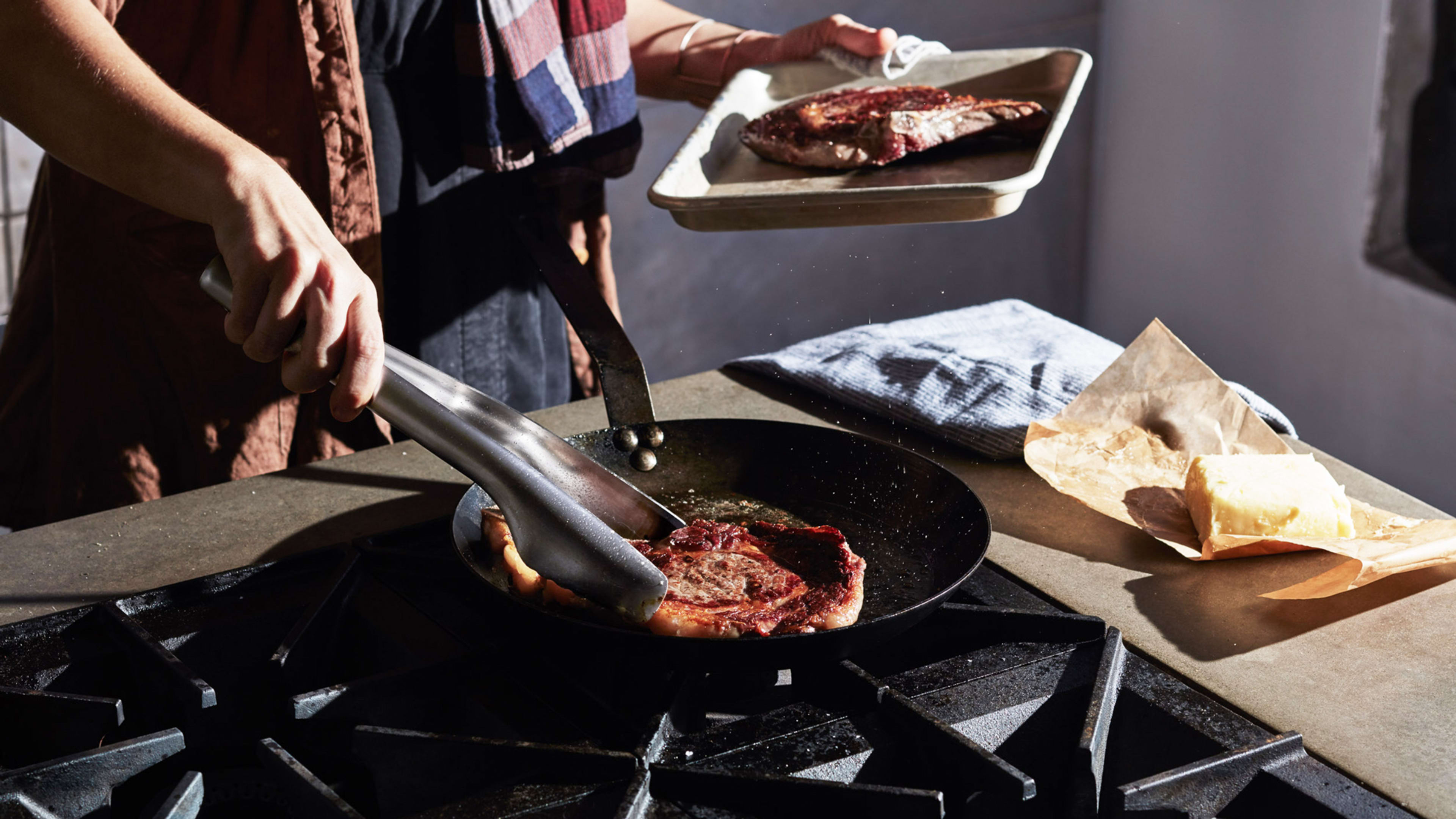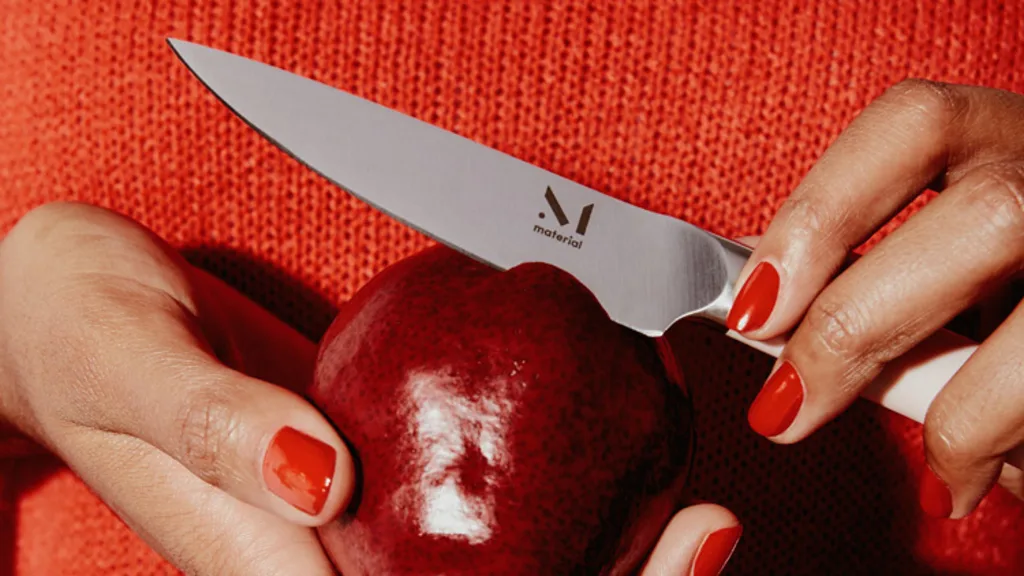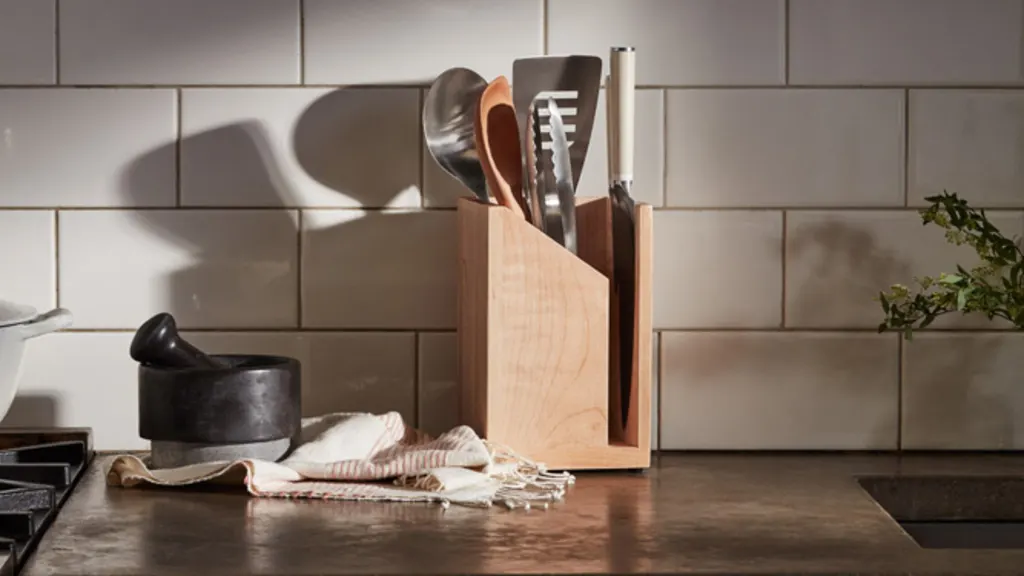The cookware industry thrives on making you feel like you need hundreds of highly specialized tools to make your dinner. This is perhaps why, in the decade and a half since I graduated from college, I have accumulated heaps of kitchen tools, most of which are poorly made and don’t get much use. I recently took a glance at my utensil drawer and found: 12 different knives, five spatulas (some metal, some silicone), slotted spoons, regular spoons, a pasta spoon, a ladle, a pizza cutter, a garlic smasher, metal tongs, and plastic tongs. As someone who likes clean, minimal spaces, opening this drawer often puts me on the verge of a minor heart attack.
Material Kitchen is here to help. This direct-to-consumer startup, which launched earlier this year, creates a grand total of nine tools (plus a base to hold them in). Material sells the products entirely through its website, cutting out middleman costs and brick-and-mortar overhead, which means products are less expensive than others on the market of comparable quality. Material’s founders–Eunice Byun and David Nguyen–focus on design and functionality in equal measure.
“We both love to cook for our families,” Byun says. “After years of working at hard-charging corporate jobs, we now want to spend more time at home. We set out to create the tools that we wished we had as home cooks.”
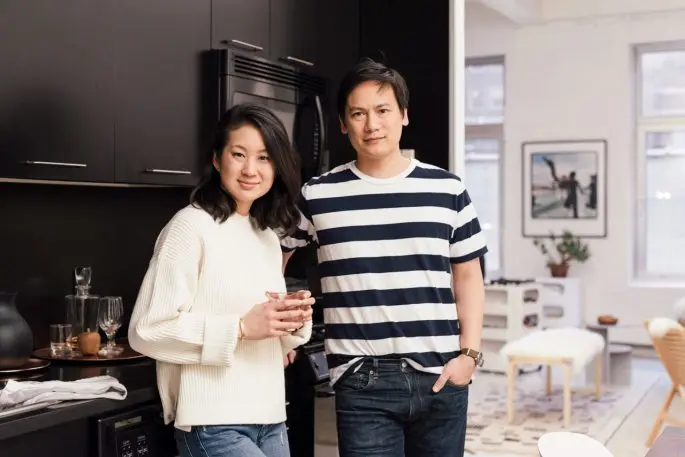
Material’s focus on fewer but more functional tools can be partly attributed to the fact that its founders don’t come from the kitchen or restaurant industries. Nguyen spent years at Chanel and Valentino, leading business planning, and Byun was most recently a VP of digital marketing at Revlon. “Being outsiders in this industry can sometimes be helpful,” says Byun. “We don’t feel pressure to keep selling customers more and more products. We’d rather they own a few Material products that they really need and love.”
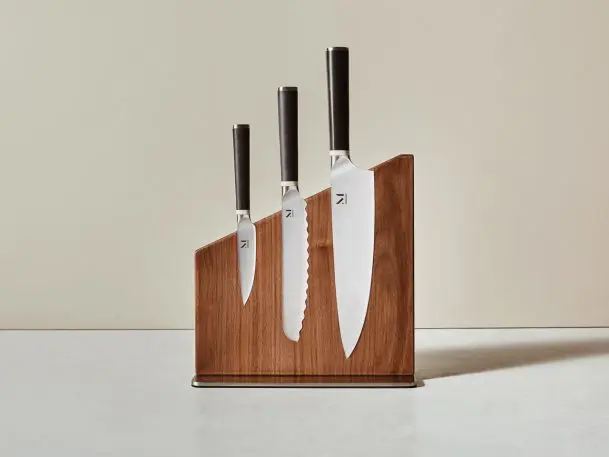
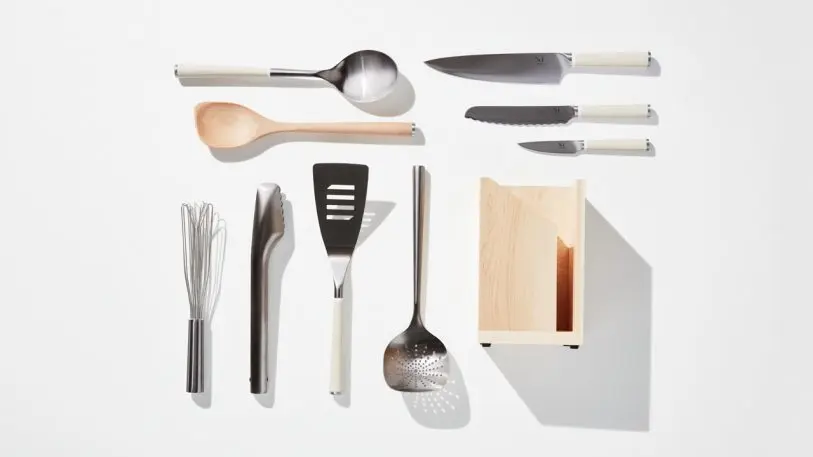
You can buy the entire set for $245, or buy individual items piecemeal; a knife, for instance, costs $75. This is more expensive than the average Target set, and is on par with entry-level sets from Williams-Sonoma. It’s significantly cheaper than the higher end of the market, where a knife can cost upwards of $200. And importantly, Materials’ founders believe these tools will allow you to do more with less, meaning you won’t need as many products. “And we believe that these nine tools can cover almost all your bases,” Byun says. “And we worked to make these items as functional as possible.”
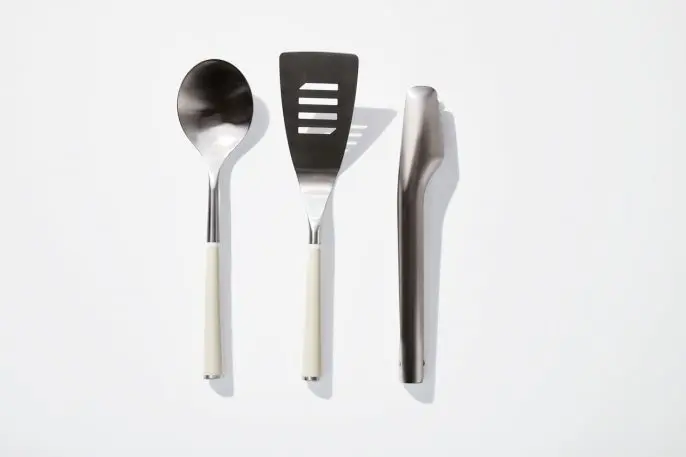
While the founders have emphasized a less-is-more approach in their design, they still give you the ability to customize your utensil set to fit your kitchen. You can choose either white or black handles, and you can choose a darker or lighter wood for the base. And there are tiny aesthetic details on the utensils that people may not notice on first glance, like the “M” engraved in the stainless steel tip of every tool, or the delicate asymmetrical pattern on the spatula.
Ultimately, Byun and Nguyen believe that while beautiful tools don’t necessarily result in more delicious food, they may make the cooking experience more pleasurable, especially when you look at your tools every single day. “Our goal is to make cooking a more delightful experience,” says Byun. “We think that if you love your tools, you’ll be more likely to cook more.”
Recognize your brand's excellence by applying to this year's Brands That Matters Awards before the early-rate deadline, May 3.
